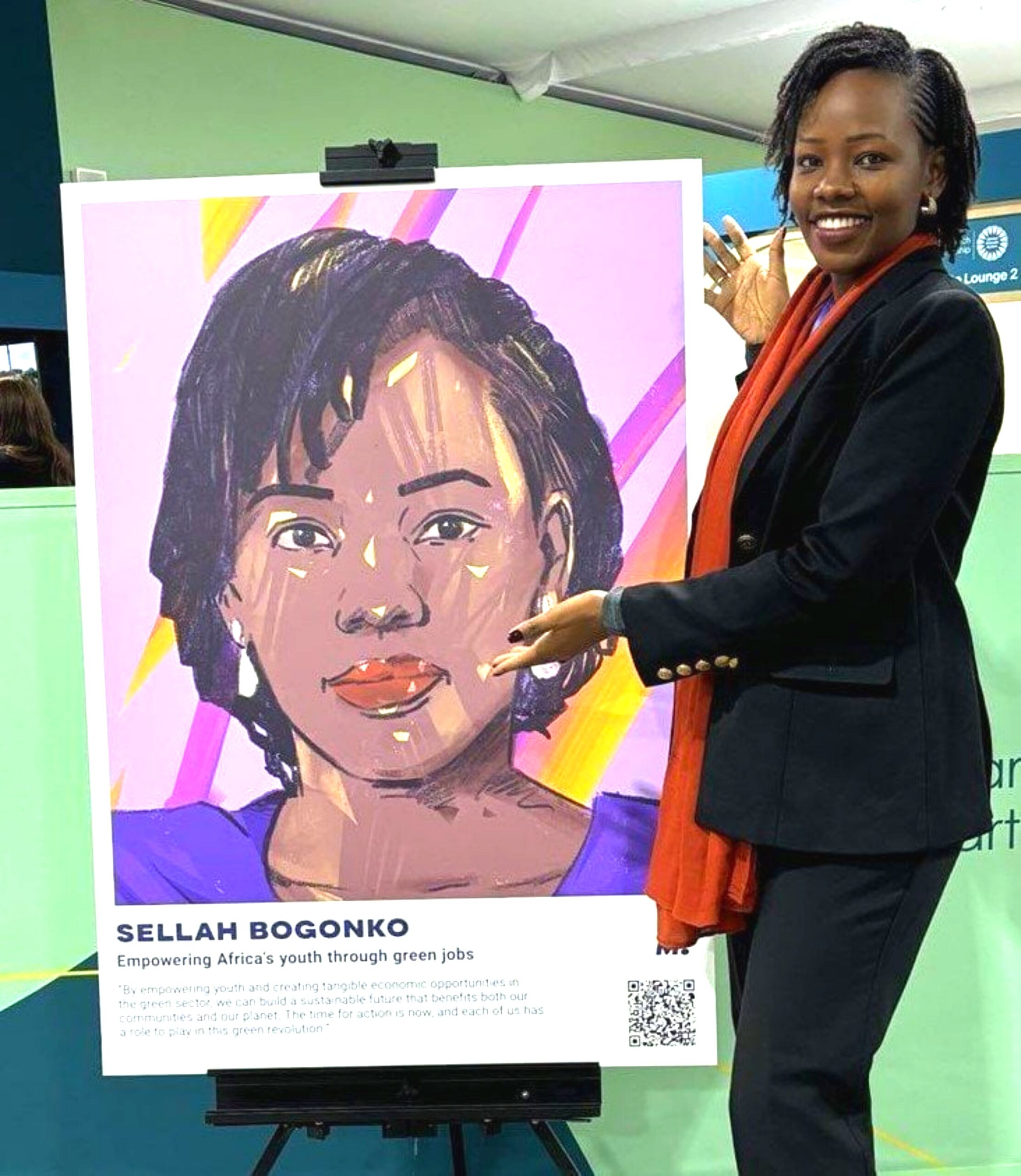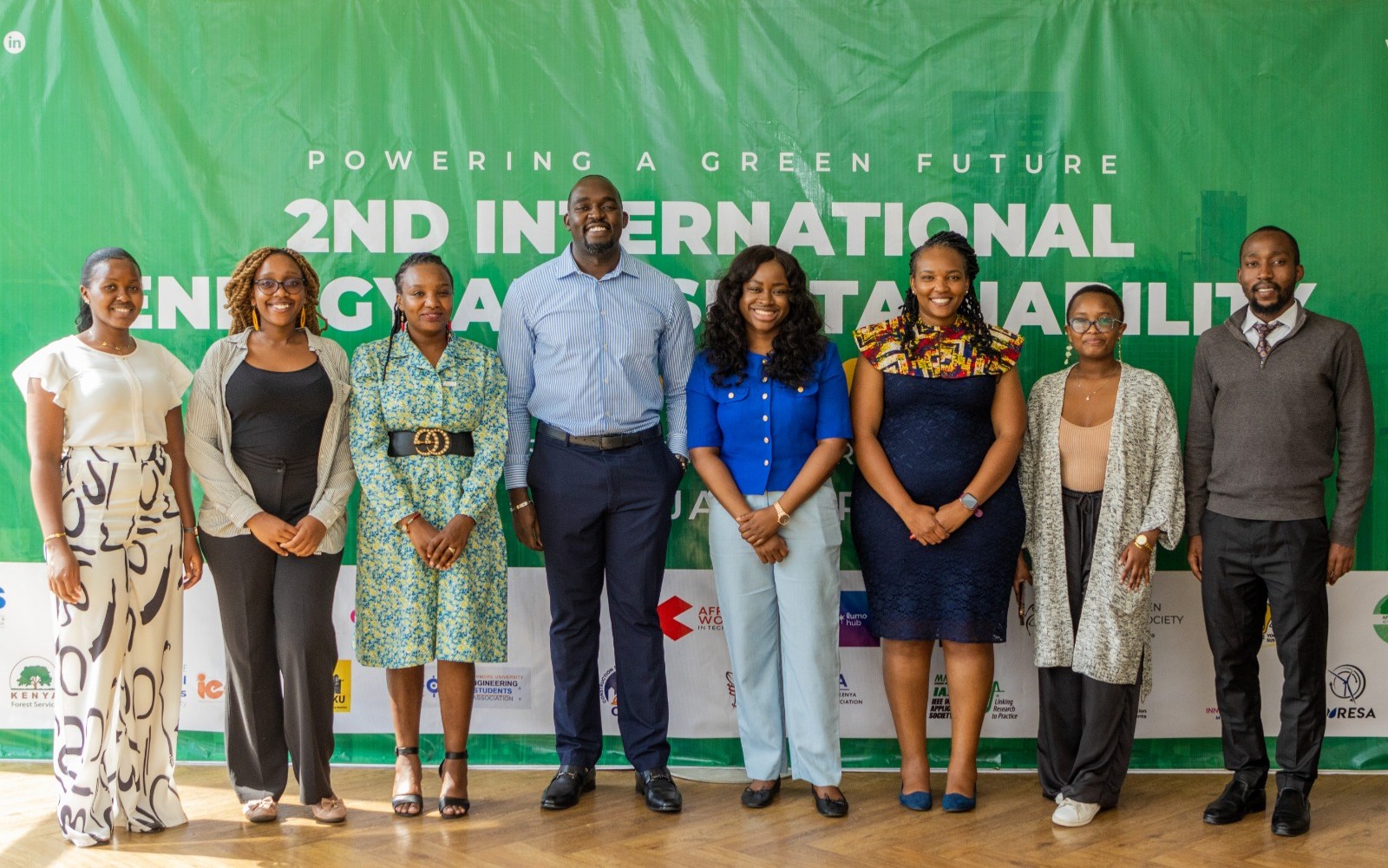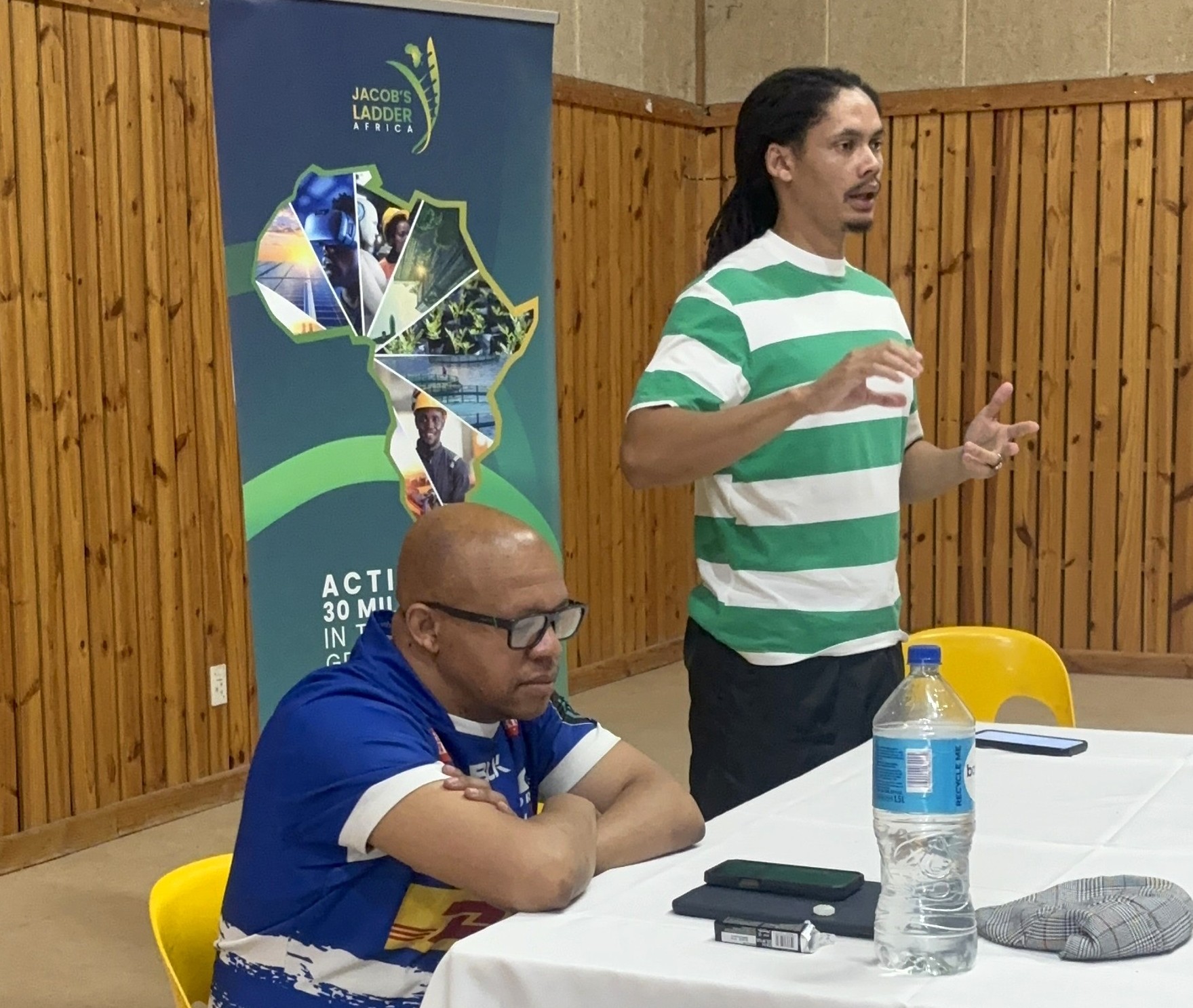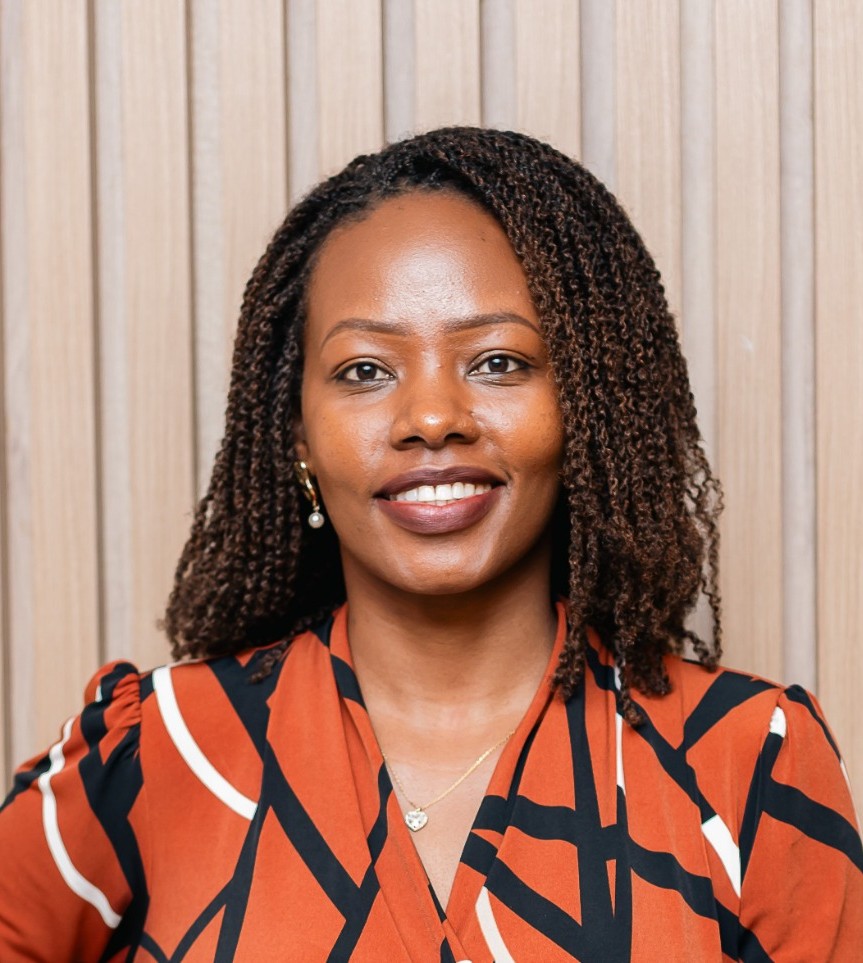At COP29 in Baku, Azerbaijan, the spotlight shone brightly on Sellah Bogonko, Co-Founder and CEO of Jacob’s Ladder Africa (JLA), as she was recognized as a COP29 Impact Maker by the United Nations Framework Convention on Climate Change (UNFCCC). Nigar Arpadarai, a Member of Parliament and High-Level Climate Champion, accorded the honour and celebrated Sellah’s transformative work in empowering African youth through green jobs.
Her portrait, featured in the prestigious Impact Makers Exhibition, garnered global attention, including praise from LinkedIn’s sustainability leader, Efrem Bycer. This recognition underscores the pivotal role that leaders like Sellah play in shaping Africa’s green economy and driving global sustainability efforts.
Sellah also participated in a High-Level Climate Champions Special Event, a debate hosted by LinkedIn and curated by Debatable by Kite Insights, a platform designed to explore critical societal and economic issues by showcasing diverse perspectives at prominent events. The motion for debate was: “Investing in skills is THE climate commitment that counts.”
The framing was straightforward yet impactful: achieving ambitious climate goals—such as tripling renewable energy capacity by 2030—demands not just innovation and funding, but also a skilled workforce capable of implementing these changes. The debate asked critical questions: Are skills the cornerstone of the climate transition, or should other priorities, such as phasing out fossil fuels, protecting nature, or advancing technology, take precedence? And if skills are indeed pivotal, what does meaningful investment in them look like? Sellah championed the side advocating for skills as the central pillar of the climate transition, emphasizing their role in creating a workforce ready to turn aspirations into action.
Green Skilling: The Key to Africa’s Future
As the world transitions to a sustainable economy, the demand for green skills is soaring. Between 2023 and 2024, the demand for green expertise grew by 11.6%, yet the supply of qualified talent increased by only 5.6%, according to LinkedIn’s Global Climate Talent Stocktake 2024. Without urgent action, nearly half of green jobs could remain unfilled, stalling progress toward global sustainability goals.
For Africa, this skills gap presents both a challenge and an unprecedented opportunity. Home to the youngest population in the world, Africa holds the potential to lead the global green transition by investing in education, training, and innovation tailored to green industries.
“Africa’s youth are not just the leaders of tomorrow—they are the green economy’s driving force today,” says Sellah Bogonko. “By equipping them with the right skills, we can unlock transformative opportunities that benefit the entire continent and the world.”
Africa: The Heart of the Green Transition
Africa is uniquely positioned to benefit from the global shift to sustainability. The continent holds more than half of the world’s critical resources necessary for a successful and sustainable green transition, including minerals for renewable energy technologies like solar panels, wind turbines, and batteries.
Beyond resources, Africa’s potential lies in its people. With a youthful and entrepreneurial population, the continent has the capacity to build a green workforce that not only meets domestic needs but also serves as a global talent pool for industries like renewable energy, sustainable agriculture, and green construction.
The Role of Key Sectors
- Energy and Mining: Africa’s rich deposits of lithium, cobalt, and other minerals make it central to the renewable energy revolution. Equipping young people with expertise in sustainable mining and clean energy systems is crucial.
- Agriculture: As the continent battles climate-related challenges, green innovations in agriculture can enhance food security and create jobs.
- Construction: With urbanization accelerating, sustainable building practices can reduce emissions and provide eco-friendly housing for millions.
However, awareness and preparedness vary across industries. Sectors like manufacturing and logistics are advancing faster in green skilling, while others, such as financial services and government, are lagging. This disparity highlights the urgency of holistic, cross-sector investment in green education and training.
A Call to Action for Africa’s Youth
Sellah’s recognition at COP29 is more than a personal milestone—it’s a rallying cry for Africa to harness its untapped potential. By prioritizing green skilling, the continent can not only address the global skills gap but also drive its economic growth and sustainability agenda.
The Future is Green, and Africa is Leading
As Africa transitions to a greener economy, its vast resources and youthful energy position it as a linchpin of global sustainability. Leaders like Sellah Bogonko are paving the way, showing how investment in green skills can create jobs, tackle the climate crisis, and secure prosperity for generations.
The green revolution is here, and Africa stands at its forefront. The question isn’t whether the continent will rise to the challenge—the question is: how far will Africa’s youth take it?






